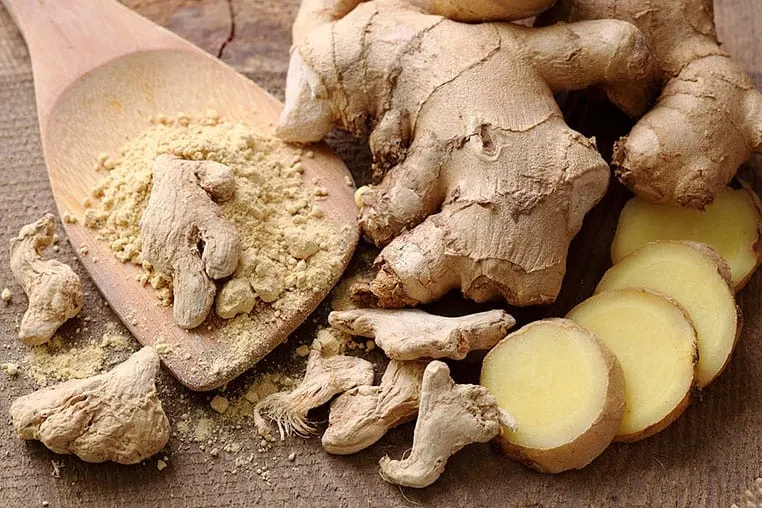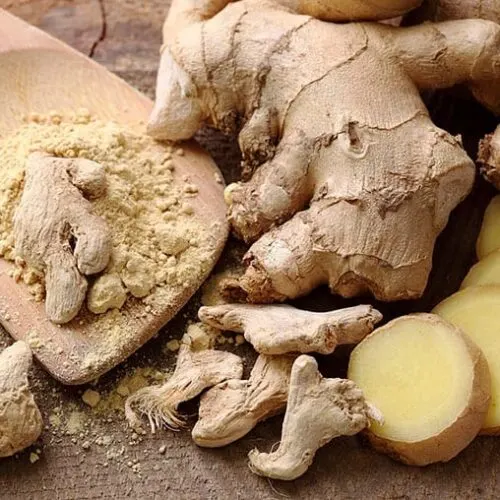Ginger is arguably one of the most crucial spices that play a central role in almost every exotic cuisine out there.
You can construct a dish around it or use it simply as a garnish. Either way, you get a plate full of flavor and a sublime aromatic experience.
Besides, they are also known to come with a cluster of potential health benefits.
Ginger is a Southeast Asian native flowering plant. Its earliest usage traces back to ancient Indian and Chinese tradition.
According to some earliest Chinese texts, ginger was an excellent remedy for scurvy.
Besides, ginger is still one of the most overused spices due to its highly versatile nature. You can use it fresh, dried, powdered, oil, or even blend a juice out of it.
However, you have to wonder: will rotten ginger produce the same result as fresh ones? How long does ginger last? And, should you be concerned when using bad ginger?
If you are curious about any of those questions, continue reading.
How Long Does Ginger Last? Does Ginger Go Bad?

Here’s the deal with ginger: Contrary to what the majority of the people believe, they do go bad.
But, the tricky thing is, you can still use them because bad gingers do not cause any major side effects.
The only thing is that you will notice a significant reduction in the taste and aroma profile of bad ginger.
Now back to the shelf life of ginger:
Unlike many other packaged foods, ginger does not come with a specific expiry date. So, it is relatively harder to determine the exact shelf life of ginger. Besides, the answer may also vary depending on whether it is fresh or dried.
The maximum shelf life of ginger will depend mainly on how you store it. However, if you want a general estimation, we would say fresh ginger should last you well for up to a month.
However, if you put it in a freezer, its shelf life can increase to up to 2-3 months. It is also important to note that fresh ginger with a smooth peel is more likely to last longer than the one with wrinkled skin.

So, you may want to take that into account when you go to buy a new batch of fresh ginger. Another precautionary measure to take is to look for molds. Gingers can start getting moldy in their package if they are not stored in proper conditions.
Ground dried ginger, on the other hand, can last you well for up to several years. Since they are already in their ground state, external factors like moisture and air (oxidation) do not affect them as much.
How to Tell if Ginger is Bad?

Ginger is all about strong flavors and aroma. That, however, changes drastically once they go bad. As such, it is fairly easy to identify bad gingers.
Look for these signs if you want to steer clear of spoiled gingers:
Look at its skin/peel consistency
Normal ginger will have smooth skin consistency. You can easily peel them off using a knife. However, that will not be the case for spoiled ginger.
You will notice wrinkled skins, and you will also find it difficult to peel them. You will also notice that the inside of the ginger no longer has that moist texture.
Instead, it will be dry and hard to crush, as well. All these changes are mainly due to moisture exposure. It is best to store your fresh gingers in a cool and dry place if you want to prevent such problems.
Do you see molds?
Mold is one of the most obvious signs you can look for. It is common for ginger to accumulate mold growth over time.
You may notice mold growth on its cut end, which may indicate that it is no longer safe to eat. If the mold specks are small, you can try cutting it out and using the rest.
However, if the speck is too large, we suggest you throw it out entirely. Eating moldy ginger may not be the best idea.
Mold formation is (again) another strong indication of excess moisture. In addition, moisture can also make ginger turn greyish as opposed to the usual bright yellow color.
Conclusion

The shelf life of ginger is relatively longer than other spices out there. But, they will go bad, nonetheless.
Fresh gingers are always at risk of losing their potency if they are exposed to moisture. Dried ones, on the other hand, will last you well for several years, as long as you do not keep them out in the open.
However, one positive takeaway is that spoiled ginger does not cause any major health concerns. The only thing you have to worry about is less natural flavor and aroma.
Of course, you may want to steer clear of mold infections. But that also can be taken care of easily if you store them the right way.

How Long Does Ginger Last? Does Ginger Go Bad?
Ingredients
- Ginger
- Air-tight containers or Ziplock bags
- Labels and markers
Instructions
- Read the guide thoroughly to learn how long it lasts.
- Label your container with the content and date and keep track of how much you’re using!
- Make sure to store in an airtight container in a cool, dark place (pantry or fridge).
- If frozen, thaw in the fridge before use. Always check for signs of spoilage before using.
